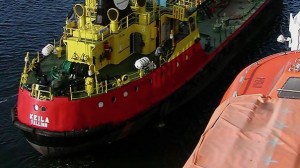TALLINN — Echoing remarks from the Kremlin made in the fall, Russian Railways announced that it would like to intake all Russian oil shipments at Ust-Luga and Murmansk instead of Estonian ports.
Russian Railways CEO Vladimir Yakunin told newspaper Eesti Päevaleht last week that by the end of 2010, the state-owned company would cease going through Estonia, whose principal port is Tallinn. Ust-Luga port, situated in the Gulf of Finland, is primarily a coal and fertilizer terminal but by 2011 will carry more oil. The port was opened in 2001 in part to avoid dry cargo shipments through the Baltic states.
“We hope that by the end of 2010 the export of petroleum products will go through Ust-Luga,” Yakunin said. “It is difficult to answer unequivocally as I am not an oil trader, but as a railway man I think, yes, this will bring significant reductions in oil transit to Estonia.”
Bye-bye Baltics
The move is part of an ongoing shift to bring shipping through Russian ports to cut costs and punish the Baltic states for diplomatic tiffs such as the 2007 Bronze Soldier incident in Estonia and what the Russian government calls discrimination against ethnic Russians in the Baltic states.
An estimated 90 percent of Russian imports and exports are currently transported through the Baltic ports, aiding the economies of the three countries. The Russian’s move toward using domestic ports will hurt the three country’s economies by reducing port and railroad traffic.
“I have asked the transport department about cargo transshipment in Russian ports. I have been informed that 75 percent of transshipment of export-import cargo was carried out in foreign ports in 1998-99 and only 25 percent in Russian ports. The current ratio is 13 percent to 87 percent. I think this is a very good dynamic, and we will fully remove our dependence on foreign ports in the foreseeable future. This is extremely important for the national economy and in regards to additional jobs,” Russian Deputy Prime Minister Sergei Ivanov said in a statement to the press in September.
“Until recently, Russian seaports had no fuel oil transshipment terminals, so we had to export about 17 million metric tons of the commodity via Estonian ports,” Ivanov said. “There will be no need to continue our oil product exports and imports through Estonian ports.”
The Baltic ports are well-aware of Russia’s intentions, and say they are attracting Central Asian transport to make up for the lost traffic.













